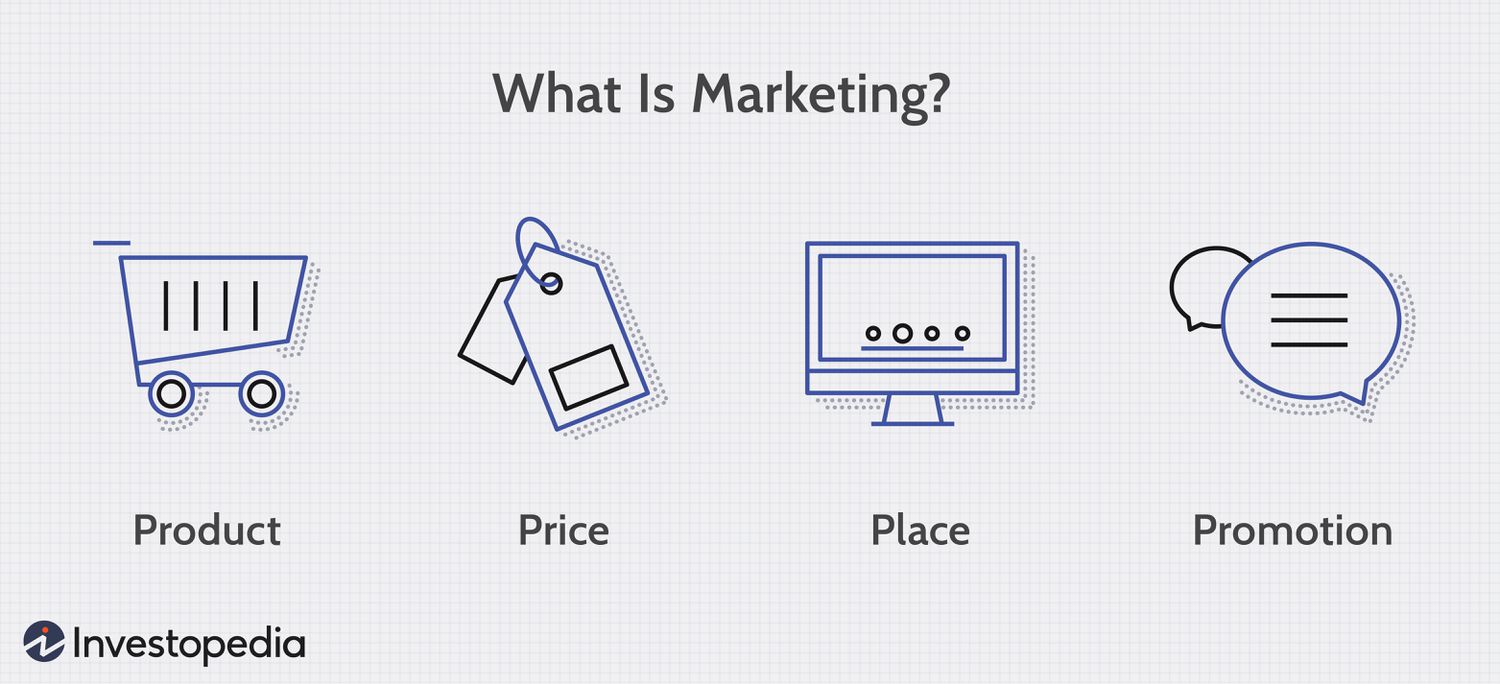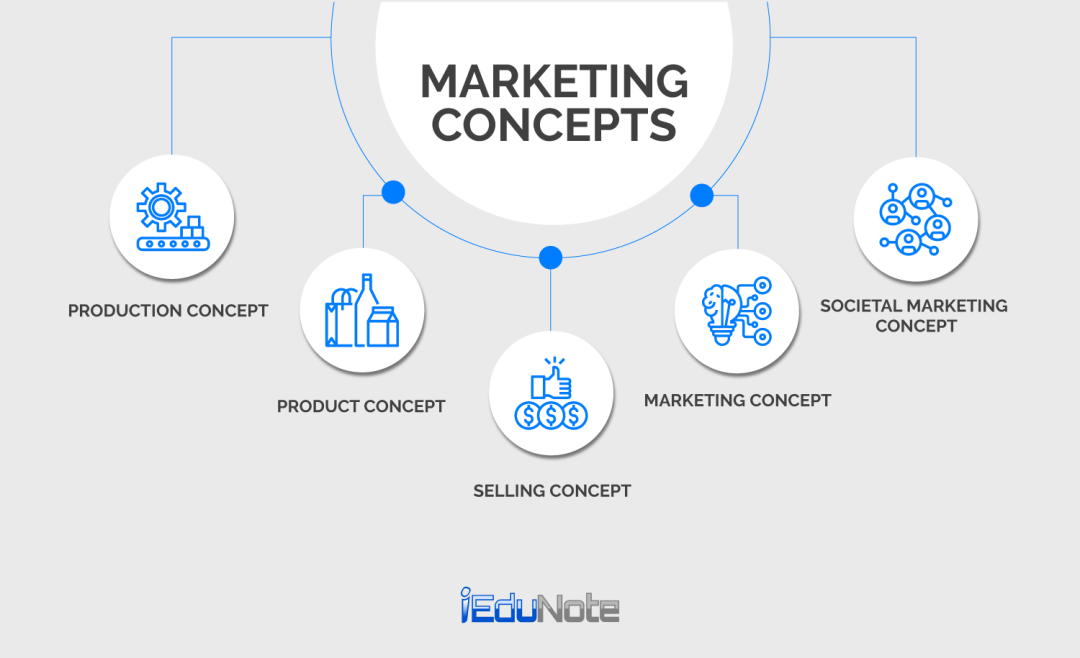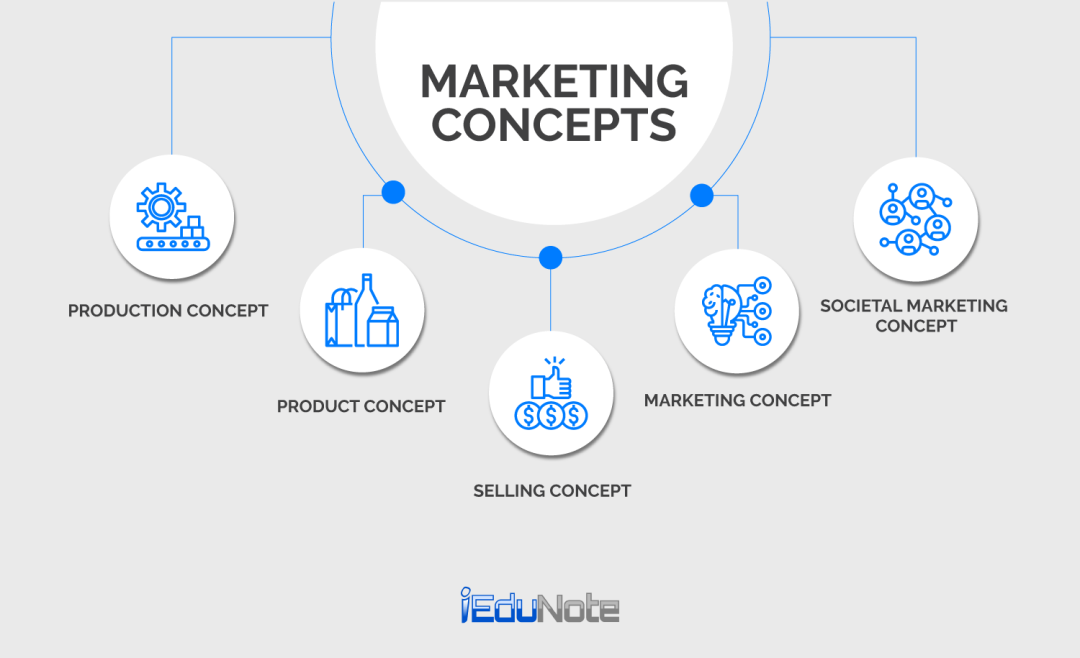Understanding the Customer: Essential 5 Marketing Concepts
Table of Contents
Learn the key aspects of marketing and explore the 5 major marketing concepts: production, product, selling, marketing, and societal. Discover their benefits and purposes for businesses.
What Is Marketing?

Marketing is the practice of creating awareness and interest in a product or service. It involves understanding what people want and need, and then communicating the benefits of a product or service in a way that resonates with them.
Here are some key aspects of marketing:
- Market research: Understanding the target audience and their needs.
- Product development: Creating products or services that meet those needs.
- Pricing: Setting a price that is both fair and profitable.
- Promotion: Communicating the benefits of the product or service to the target audience.
- Distribution: Making the product or service available to the target audience.
Marketing can be done through a variety of channels, such as advertising, social media, content marketing, public relations, and more. The goal of marketing is to create a positive perception of the product or service and to ultimately drive sales.
What are the 5 major marketing concepts?

These are the five main marketing concepts.
- Production concept
- Product concept
- Selling concept
- Marketing concept
- Societal marketing concept
1. Production Concept

This approach focuses on making products readily available and affordable. It assumes consumers favor efficiency and low costs over unique features or variety. This concept was common when production was limited, and the goal was to scale up and decrease prices.
2. Product Concept
This belief centers on creating high-quality, innovative products. It assumes consumers will be drawn to products with superior features, performance, or benefits, even if they cost more. This concept emphasizes product development and differentiation in a competitive market.
3. Selling Concept

This approach focuses on aggressive promotion and selling techniques to convince consumers to buy a product. It assumes consumers won’t buy unless they are persuaded through advertising, salesmanship, or other promotional efforts. This concept is often used when there’s high competition and products are similar.
4. Marketing Concept

This philosophy emphasizes understanding customer needs and wants and then developing products and services that fulfil them. It focuses on building relationships with customers and creating long-term value through satisfaction and loyalty. This concept is about meeting needs, not just making sales.
5. Societal Marketing Concept

This broader perspective considers the impact of marketing activities on society and the environment. It aims to balance the needs of consumers, businesses, and society as a whole. This concept encourages practices that are ethical, sustainable, and responsible, promoting the well-being of all stakeholders.
Benefits of Marketing Concepts
Marketing concepts offer several benefits for businesses and organizations:
Improved Customer Satisfaction
By understanding customer needs and wants, businesses can create products and services that better meet their expectations. This leads to higher customer satisfaction, loyalty, and repeat business.
Efficient Resource Allocation
Marketing concepts help businesses focus their resources on the most effective marketing strategies. This can lead to cost savings and a better return on investment (ROI).
Competitive Advantage
By understanding the market and their target audience, businesses can develop unique selling propositions (USPs) that set them apart from the competition. This can help attract new customers and increase market share.
Improved Decision-Making
Marketing concepts provide a framework for making informed decisions about marketing activities. This can help businesses avoid costly mistakes and ensure that their marketing efforts are aligned with their overall business goals.
Societal Benefits
Some marketing concepts, like the societal marketing concept, encourage businesses to consider the broader impact of their marketing activities on society. This can lead to more sustainable practices, ethical marketing approaches, and a positive contribution to society as a whole.
Purposes of Marketing Concepts
Marketing concepts serve several key purposes for businesses and organizations:
1. Guiding decision-making
These concepts act as a framework for businesses to evaluate options and make informed choices about their marketing endeavors. By understanding different approaches, companies can choose the most suitable strategies for reaching their target audience and achieving their goals.
2. Understanding the market
Marketing concepts equip businesses with tools to examine the marketplace and gain insights into customer behavior, competitor strategies, and emerging trends. This knowledge allows them to adapt their marketing efforts to remain competitive and relevant.
3. Communicating value
These concepts help businesses clearly communicate the value their products or services offer to customers. This includes understanding what motivates customers and crafting messaging that resonates with their needs and desires.
4. Building relationships
Effective marketing hinges on building positive relationships with customers. Marketing concepts help companies develop strategies that foster trust, loyalty, and engagement with their target audience.
5. Achieving goals
Ultimately, marketing concepts serve as instrumental tools for businesses to achieve their marketing goals. By utilizing these frameworks, businesses can increase brand awareness, attract new customers, generate sales, and build long-term success.
Final Thoughts
Marketing is all about understanding customer needs and creating value for them. Through various concepts like the production, product, selling, marketing, and societal marketing concepts, businesses can tailor their strategies to achieve their goals.
These concepts guide decision-making, help understand the market, communicate value, build relationships, and ultimately, achieve success. By utilizing these frameworks and adapting to the ever-evolving landscape, businesses can create positive and sustainable solutions for both themselves and society.
For More Information Please Visit These Websites Craiyon And Arturia





